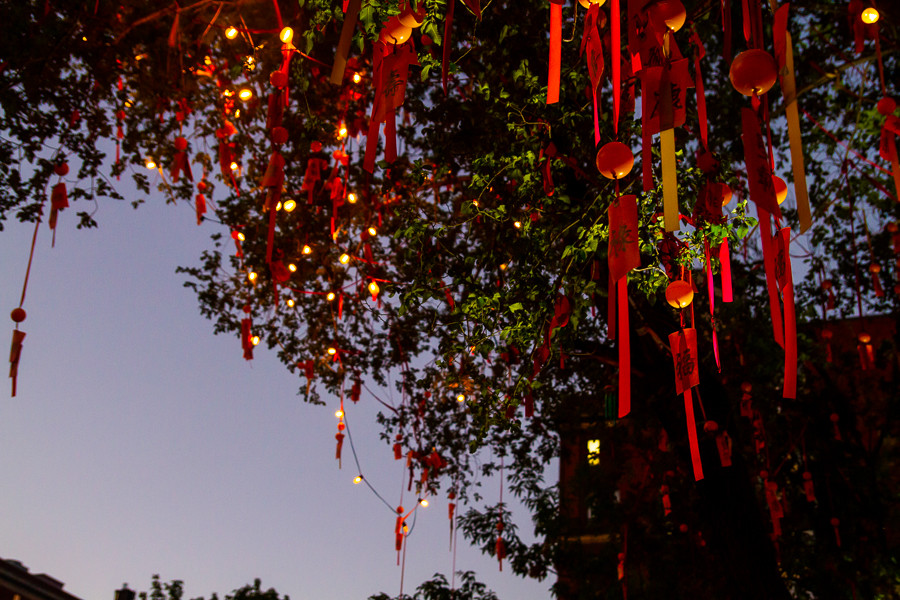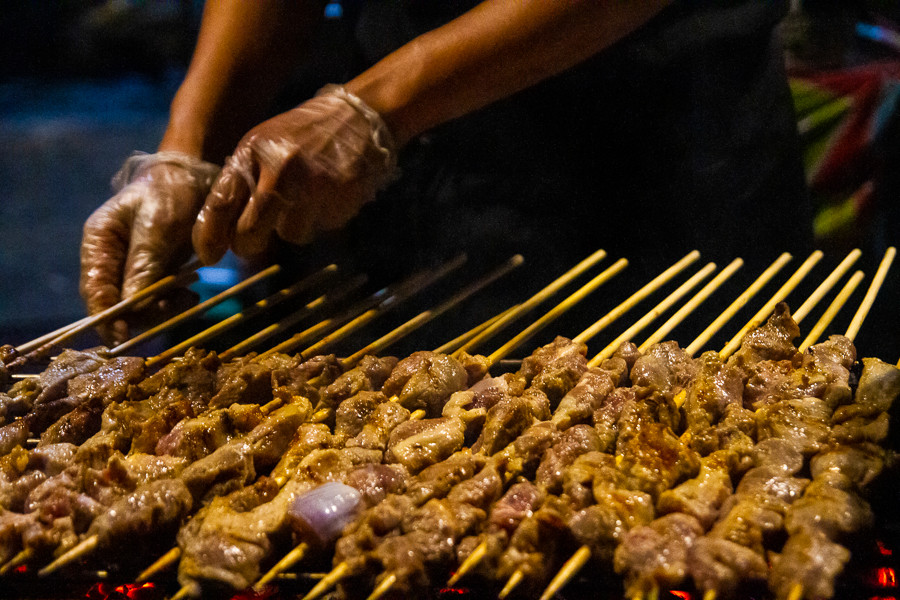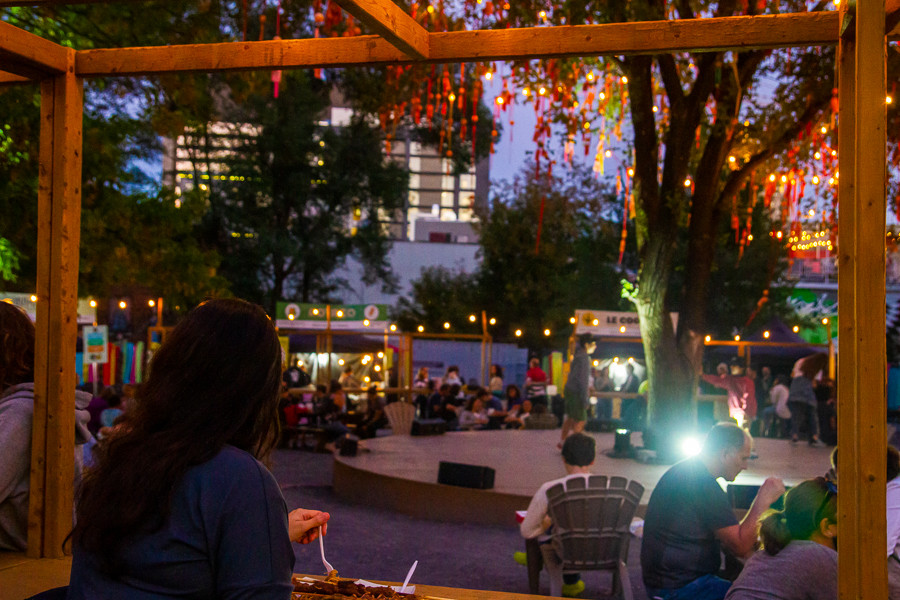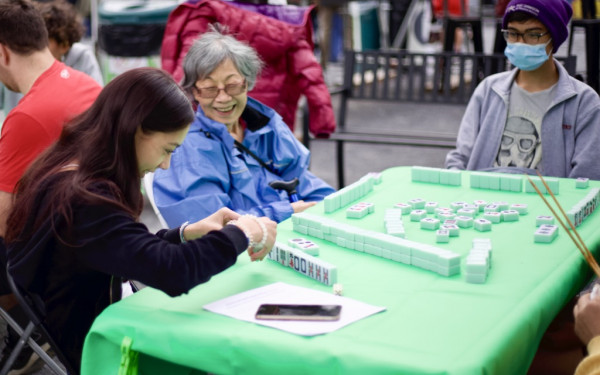Marché Asiatique hopes to lend a hand in revitalizing Montreal’s Chinatown
Asian night market remains popular despite COVID-19 restrictions
The Marché de Nuit de Montréal has been busy with the return of the Asian Night Market in Montreal’s lively Chinatown, which spans from Aug. 12 to Sept. 26.
Though this is the fourth edition of the Marché Asiatique, it is the first time they teamed up with La Pépinière, a non-profit organization whose mission is to bring communities together by supporting municipalities and local vendors. With a total of over 60 vendors participating in the event, Chinatown finds its streets bustling with people looking to get a taste of what it has to offer.
The market, which is located on the corner of St. Laurent Blvd. and René-Lévesque Blvd. in the Place des Souhaits oasis, is designed by Karen Tam and Jean de Lessard.
“In our present time of the COVID pandemic, its adverse effects on Chinatown, as well as the rise in anti-Asian racism, the Montreal Chinatown wishing tree pays homage to its community.” — Karen Tam
“In our present time of the COVID pandemic, its adverse effects on Chinatown, as well as the rise in anti-Asian racism, the Montreal Chinatown wishing tree pays homage to its community,” Tam said of the inspiration behind the design of the wishing tree. “As Chinatown is a living organism, the wishes are also for its continued survival and growth,” she added.
Made to celebrate Montreal’s Chinese culture, Tam and de Lessard describe Place des Souhaits as an intergenerational space that encourages the community to come together. It is here, basked in the warm glow of the wishing tree, where you will find an array of vendors representing various restaurants. Some restaurant owners are even willing to make a five-hour drive from out of town to partake in the festivities.
“I’m just working here to help out, but the owner is from Toronto,” Zili Zhang said of Teriyaki Squid, a restaurant vendor of this year’s market. “He comes every year, but this year has been more quiet,” she continued, referencing the effect of the pandemic.

Chinatown has felt the economic impact of the COVID-19 pandemic even more so than other areas of the city in part because of the recent wave of anti-asian racism. But even with some restrictions in place for this year’s edition—like a maximum capacity of 250 people and the newly implemented vaccine passports—you can often see a line down the street to get in.
Jimmy Otsuka, manager of Sugar Marmalade, said the market's busiest time is during the end of August. Though it has slowed down a little since, it remains busy overall despite the school year starting for many, and Otsuka said he was happy to see plenty of families with kids coming by his table throughout the weekend.
Read more: This year’s Festival Stop Motion Montréal comes to a close after a successful 13th edition
Read more: Massimadi foundation branches out with their new initiation Massimadi en rue
Around 200 people can be found inside Place des Souhaits on a Saturday evening, enjoying a bite of Japanese cheesecake or fried squid. With a platform built around the wishing tree, you can catch sight of a toddler or a child dancing around the spotlights which illuminate the tree.
While there may have been a noticeable drop in attendees compared to the previous one held in 2019, vendors remain encouraged by the amount of people who came out to support them.

The festival came together without any major setbacks, but it was no easy feat to organize explained event coordinator Lili Lai.
“We had to get the approval from the Chinatown merchants,” she said. “The team Marché de Nuit literally went out and talked to 90 merchants in Chinatown out of, let's say 110 total, trying to get the approval of them to see if it’s okay to have this actually happen."
Lai explained how many of the merchants encouraged it in hopes of bringing back the foot traffic that was lost during the pandemic.
“They’re just a bit wary about the government due to a lot of groups and organizations which have approached Chinatown in order to get funding from the government but end up not doing anything for them,” Lai said.
The market this year is sponsored by the Government of Quebec, Tourisme Montréal, Arrondissement Centre-Ville, and Quartier des Spectacles. It is currently open from 5 p.m. to 11 p.m., Thursday to Sunday. Though it was supposed to run until Oct. 3, it is shutting down a week earlier than originally anticipated due to issues involving government funding. Despite an early end, Lai expressed optimism in eventually making the market permanent—another step toward revitalizing the beloved neighbourhood.
With doors closing on Sept. 26, there is still time to venture down to Place des Souhaits Quartier and experience a true taste of Chinatown’s best.




